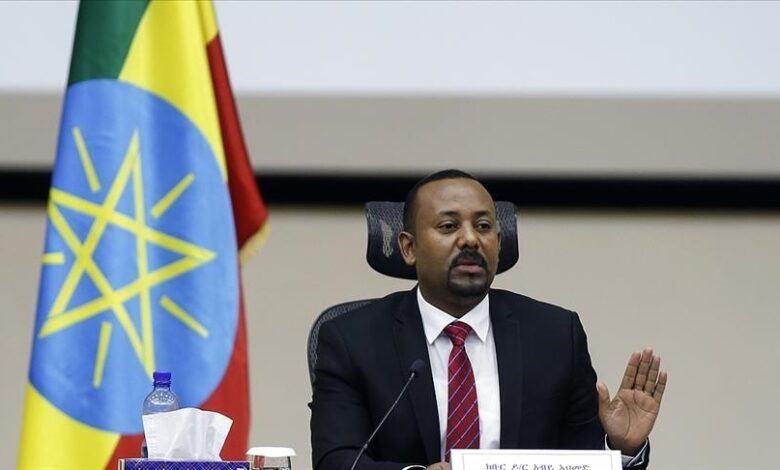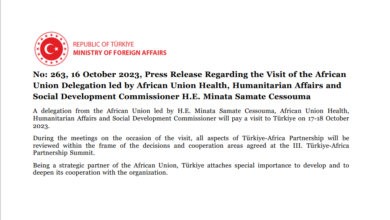Ethiopian PM affirms “no plans for invasion over Red Sea ports access”

Ethiopian Prime Minister Abiy Ahmed on Tuesday reiterated his pledge not to invade neighbouring nations over the Red Sea but insisted that his government would not abandon its demand for port access.
Abiy’s remarks last month about the Red Sea raised regional concerns, particularly as tensions emerged with neighbouring Eritrea, which has a long coastline.
In a televised speech on October 13, Abiy said that landlocked Ethiopia “is a nation whose existence is tied to the Red Sea”, a key waterway for global trade.
He said Africa’s second most populous country needed access to a port, adding: “If we plan to live together in peace, we have to find a way to mutually share with each other in a balanced manner.”
Since then, Abiy has sought to alleviate regional fears, telling a military parade two weeks later that “Ethiopia will not pursue its interests through war. We are committed to mutual interest through dialogue and negotiation.”
On Tuesday, Abiy told lawmakers: “We want to reassure everyone that we have no plan of invading others, but we will not be ashamed of again fairly requesting port access.”
“With a growing economy and population, lack of access to (the) sea would remain a major problem for us,” he said.
Abiy’s previous comments raised hackles in Eritrea, whose information ministry last month released a statement describing “discourses” about access to the sea as “excessive”.
On Tuesday, Abiy said: “We have no intention of breaching others’ sovereignty, but we ask just discussion (about) access to sea”.
“We don’t know what will happen in the future if Ethiopia’s demand for access to the sea isn’t resolved peacefully today,” he warned.
Ethiopia lost its coastline after Eritrea broke away from Addis Ababa and formally declared independence in 1993 following a three-decade war.
It enjoyed access to a port in Eritrea until the two countries went to war in 1998-2000, and since then has relied largely on Djibouti for imports and exports.
Abiy won a Nobel Prize in 2019 for his rapprochement the previous year with Eritrea, whose troops later backed Ethiopian forces in a two-year war in Tigray.
But relations have appeared strained since the Tigray conflict ended in November 2022.
Resource: Africanews





